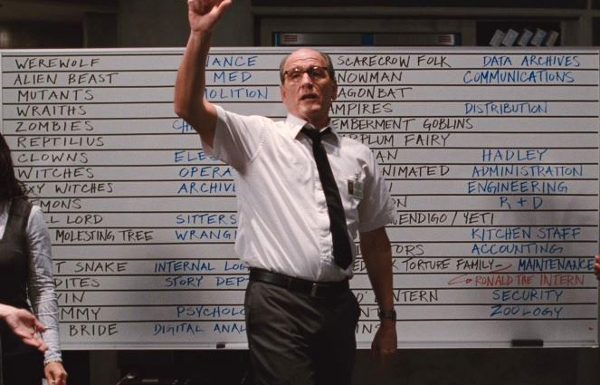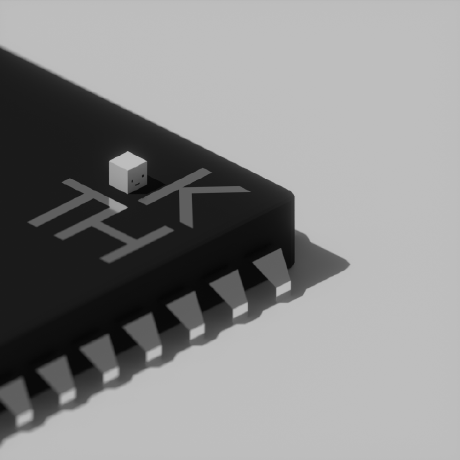Not everyone can cough up the cash for some free-range organic black hole.
If I read this post without any context I would think “this guy is too poor to hire a black prostitute” and not " this guy doesn’t have a particle accelerator capable of making a miniature black hole"
And this is why you should not skip your physics classes.
Do we have brandnewsentence on lemmy?
Ahahahah thank you so much I love this
Don’t buy lab-grown black holes, it’s not quite the same if it’s not mined by a child in South Africa. And it should cost at least three times your salary, otherwise your spouse will be ashamed.
It’s only a black hole if it comes from the black region of space. Otherwise it’s just a sparkling dense mass.
A not-sparkling stellar mass
Maybe not the actual referenced article, but its close:
https://www.livescience.com/black-hole-analog-confirms-hawking.html
While the study was testing for a specific kind of energy radiated by an artificial micro black hole…
What’s being glossed over is the broad concept and implications of Hawking Radiation.
https://en.m.wikipedia.org/wiki/Hawking_radiation
Simply put, a tiny micro black hole will evaporate itself out of existence quite rapidly.
There is no danger of such a thing growing and consuming everything like an expanding katamari damacy ball.
There is no danger of such a thing growing and consuming everything like an expanding katamari damacy ball.
Damn.
Thought we had an out… Nope we got to tackle fascism and climate change the hard way
Na na na na na na Katamari
Disappointed beyond measure. :(
Yeah, until we get a micro black hole that’s piloted by a competent Katamari player, then it’s over!
What is the minimum size until it will grow faster than it evaporates? And can we make one if we try really hard?
https://www.vttoth.com/CMS/physics-notes/311-hawking-radiation-calculator
Indeed, any black hole with a mass greater than about 0.75% of the Earth’s mass is colder than the cosmic background, and thus its mass increases for now. As the universe expands and cools, however, eventually the black hole may begin to lose mass-energy through Hawking radiation.
Size isn’t actually the main factor, mass is.
A teaspoon of what neutron stars are made of weighs as much as Mt. Everest.
Its the mass thats important, and apparently the threshold for an actually stable black hole is 0.75% the mass of Earth, 4.48 x 10²² kg … or, roughly 2/3 the mass of the Moon.
(The Moon’s mass is roughly 1/81th that of Earth’s. It ks far, far less dense.)
So… basically 0 chance in our natural life times we’ll figure out how to convert the Moon into a blackhole, lol.
EDIT:
There… could theoretically be a wandering black hole of aporoximately that mass… but even if it entered our solar system, chances are it would just get thrown out, deflected by Jupiter and the Sun, and it would only maybe eat some ice in the Kuiper belt, dust and maybe very small asteroids in the asteroid belt if it somehow made it past Jupiter.
Black holes don’t have infinite gravitational vaccuum power that extends infinitely, because they do not have infinite mass.
if they did, the occurence of one would instantly eat the entire universe at the speed of gravity, which is the speed of light.
They have as much gravity as their mass says they should, and they obey the same orbital dynamics as every other massive celestial body.
We’re fucked if a black hole hits us, but we’re fucked if anything with the same mass hits us
That is fascinating. Thank you.
If you do, you may win a Nobel prize for it
I know a little bit but I’m not an expert.
My understanding is hawking radiation will produce a rate of mass evaporating that’s fairly consistent over galactic time scales, so you just need to make sure the black hole is big enough to “suck” more mass in via gravitational attraction per given time period than evaporates through hawking radiation.
I think the bigger they are faster tge evaporate. They lose mass at some ratio between their surface and mass.
Exactly the opposite. The bigger one is, the less it evaporates. Time required to evaporate scales with Mass^3
That’s true the constant rate I mentioned would vary with the surface area of the black hole as it changes but the volume would increase exponentially faster
We know this because after testing it the micro blackhole did in fact fizzle out. /joke
If only it could suck up a few specific people before evaporating itself out of existence.
If you can’t grow your own black holes, store-bought is fine.
I really prefer wild Atlantic black holes.
It’s not that hard, all you needs a little Scots turf builder black hole edition.
I keep hearing commericals for them advertising to kill clover. Always annoys me. If clover grows in your yard, your yard likely needs the nutrients (nitrogen likely). Also, it helps bee populations, which helps well… Life.
Clover was never a weed until weed killer came around out and killed it with everything else in the grass. So they started an ad campaign that told people it was a weed and convinced people that white flowers in your yard look bad.
So now everytime I hear an advertisement that mentions killing clover I remind myself not to buy products by the brand who says it. Also, clover honey is delicious.
I love clover! So much softer than grass. I like Moss more, looks the nicest!
Clover is better at retaining moisture too. So yards with lots of clover tend to stay green longer in dry periods, which also helps life. Keep things cooler too.
Grass is really just awful ground cover.
No wonder. They’re such a pretty plant, why would anyone kill it off their lawns?
And good luck ever having any luck again if there are no four leaf clovers around!
That’s fair, and my old house I didn’t mind having clover all over my yard, some people just want straight grass though, then they want to cut cross hatches in it. Everybody’s got to have a hobby and grass cutting is less annoying the older you get.
The entire concept of a lawn is a fucking scam.
i prefer wild-generated blackholes, sources from a star.
The problem is, nobody can find out if they actually are
i prefer mines, organic, pasture and gard raised, not with artificial ingredients. must use actual STAR, none of the “collider-made particles”
Well, yeah.
If you wish to build a black hole from scratch, you must first build the universe.
But it’s not an authentic black hole unless it’s mined with slave labour!

Who had ‘Lab grown Black Hole?’
They didn’t make a black hole, they just did the supersonic Rubidium gas trick
Us developing an actual black hole would be one of the best things humanity has ever done. It would kinda be like inventing techniques to make fire.
We could throw shit around the orbit of the black hole and get fusion. Not just deuterium fusion! Even proton proton fusion. Our energy needs would be solved practically forever.
We could conduct a crazy amount of experiments on the black hole, see quantum effects of gravity and whatnot.
Maybe we could build one of em Alcubierre drives that don’t need exotic matter?
Can you imagine what a “black hole fusion accident” could look like?
No, of course not. The accident eats all the light I’d need for that.
I mean, you could imagine it for a moment.
To us it might even seem like a rather long moment.
Or would that mean that you can only imagine, because you could never truly observe it?
It would be almost impossible to do something like that without enough fuel though.
In theory you could collapse almost anything into a black hole, every piece of matter and energy has a roche limit
deleted by creator
There’s definitely a paper in this idea
Pretty sure any black hole we create would evaporate from hawking radiation before it could be used for anything outside of research.
If we could make Jupiter a black hole, would that be stable enough to not radiate away? Other big body we have access to is the sun and I feel we would suffer more side effects of turning that into a hole compared to Jupiter
Should we be making any of these things a black hole?
Replacing Jupiter with an equally massive black hole shouldn’t make a difference. We’d only have one bright dot less in the night sky.
Except squid aliens will develop a way to move it and annihilate several planets on its way to Super Earth. RIP Angel’s Venture.
(This is currently happening in helldivers 2, we turned a super bug infested planet into a black hole and now the illuminate are steering it towards earth)
The sun is debatable, since I think we already use it’s photons both for photosynthesis in plants, heat (although we could get infrared warmth from the hole) as well as other benefits
Why shouldn’t we holify Jupiter? It would be a testament to our technological progress as well as helping us study black holes "close"ish by rather than in labs
Sometimes our technological progress makes us do things we think are a good idea at the time. Then like years, decades, centuries, millennia later we realize it was not such a good idea after all.
If Jupiter was compressed to a black hole it would be 2.8 metres across and would last longer than the Sun
Scientists care too much about if we could, they forget to ask if we should.
I’m pretty sure if we made Jupiter a black hole we’d throw off our orbit and have much bigger problems.
Wouldn’t a Jupiter-mass black hole have the same gravitational effects as Jupiter and absolutely nothing would be affected?
Yup
If you were very, very close to it, not exactly, since Jupiter’s mass is more spread out, making the gravitational pull slightly weaker at close range. But for practical purposes yeah nothing would change for us other than space debris being flung around it instead of hitting it.
My point was more that we’d probably have to increase the mass to be able to make it a black hole, as we don’t have the ability to compress it to a singularity.
Black holes aren’t vacuums, nothing would change if the mass was equivalent
Yes, but you’d more than likely have to increase the mass of Jupiter to make it a black hole.
That wasn’t part of the hypothetical though
Yeah.
Then somebody drops it and it just falls down to the planet’s core and eats our fucking world.
The way we are going, its for the best
I’m not saying we shouldn’t do it.
That’s not really how black holes work. They evaporate really quickly when they’re small enough. And if they’re small, they don’t have much gravity either.
But it will still be pulled down by earth’s gravity. And depending on the size, it’s not going to just evaporate if it has a planet’s gravity pushing rock and metal into it.
A high speed black hole would just punch through the earth, but if it just falls down, it would destroy the planet.
Ok, so even if it “falls down”, it will probably evaporate way before it even reaches the center. Even if it doesn’t, it will be take A VERY LONG TIME for it to get big enough to eat the planet out or whatever.
It is very VERY difficult to make something fall inside a black hole. Mostly, stuff just zooms right past it at incredible speeds.
The earth would be consumed by the sun way before it gets consumed by a black hole.
You’re talking at scales where the incoming mass has a lot of velocity already. In a stationary frame of reference, the matter would more than likely fall directly in since there isn’t an appreciable amount of rotational momentum involved like there is at stellar sizes.
We’d have a quasi-planet.
That’s not how that works. It’s not a DnD sphere of annihilation, it’s an infinitely dense point of matter.
That shrinks in a vacuum but grows as other matter gets too close. Matter such as “the earth”. Explain how we’re not fucked if it escapes from its magnetic vacuum suspension because Kevin accidently drops it.
There is a surprising amount of empty space between atoms, and even inside atoms between the electron orbitals and the nucleus. Small black holes are so dense they mostly fall through this empty between-atom space and don’t actually hit anything. Even in a matter-rich environment like inside the Earth, you’d need a black hole with more than half the mass of the moon to be large enough to eat matter faster than it loses matter to Hawking radiation.
One of the first things we will use it for is to make a new weapon of mass destruction. Mark my words.
It would make whoever controls it effectively God, so yeah - probably.
Tiny black holes are the kind of thing that physically cant exist for more than a few like picosecods or something ridiculous like that before evaporating into radio waves.
We kinda don’t know for sure though. The tinier the black hole gets, the more it enters into the realm of quantum mechanics. We have no clue how quantum gravity works, so ¯\_(ツ)_/¯
Pretty sure the whole point of this article is we have confirmed tiny black holes do rapidly evaporate. We’ve theoretically known that any black hole just about our sun’s mass or smaller will spew more Hawking Radiation than it can consume mass and will shrink. And this process should accelerate as the mass shrinks. This seems to be the first expiremental evidence to support the well established theory.
Unfortunately an Alcubierre drive dumps a shitload of high energy radiation in the direction of travel when it stops. We would sterilize every world we get to.
What about traveling slightly off axis? Could even tack back and forth.
So why not just stop beside the planet you are aiming for?
Me travelling calmly through space when a rogue wave of high energy radiation blasts me from some rando warping 2974738 years ago
Wouldn’t that be a non-issue? The radiation is going to be spreading out in a cone, not a focused laser beam. It should dissipate down to a level that a spaceships normal radiation shielding would already need to be able to handle pretty quickly.
Hmm, I think you’re right
Isn’t that a solvable problem though? Overshoot the target planet by just enough, that it isn’t in the hemisphere of the warp bubble pointed towards the direction of motion.
I think there was a Simpson’s episode about this.
deleted by creator
It’s wild that there is so much space between atoms (and inside them, between the elctron orbitals and the nucleus), and black holes are so incredibly dense, that a small black hole can fall all the way through the Earth and not hit enough matter to gain appreciable mass.
Also it would be radiating prodigiously, and would need to eat fast to survive
You got any links to explain this in some more detail?
Because this just causes my brain to jam when trying to comprehend…
Like what diameter of black hole are we talking?
And what is the critical mass of the black whole before it starts to cascade and grow?
Did they drop “analogue” or “simulated” from the title?
Did a quick search and yep, it was a collection of rubidium atoms https://www.livescience.com/black-hole-analog-confirms-hawking.html
I remember seeing Event Horizon.
This won’t end well.
Don’t worry they didn’t make a real black hole, they just did the Supersonic rubidium gas trick
deleted by creator
There isn’t enough mass in our solar system to sustain a black hole, less on a scientists’ research budget.
There absolutely is. Any mass, no matter how small, will turn into a black hole when sufficiently compressed.
yeah but not sustain
Sounds kinda sus
Sounds kinda tain
Sure, but it won’t sustain itself at any mass. A black hole with a mass of 500,000kg lasts about 10 seconds and is harmless. If you managed to compress 300,000,000kg into a black hole you’d have it last about 100 years and it would still be too small to do any damage to the earth during that time.
You’re correct there’s enough mass in the solar system to create a self sustaining black hole though. Anything around the mass of the moon or larger we should worry. A black hole the mass of the earth would definitely be self sustaining, and about a centimetre across.
The black hole with the mass of the earth would have a diameter of around 4 cm
And Jupiter would have an event horizon 2.8m across and last about 10^67 years (still not forever)
Does the energy of light entering the black hole make it last longer?
I’m not an astrophysicist, but since general relativity says matter and energy are related and light can’t escape if it crosses the event horizon it would add to the black hole
But a 3m sphere at Jupiter’s distance from the sun wouldn’t catch much mass equivalent light from the sun
Yeah, but it does have 10^67 years to catch it.
Assuming the light isn’t bending at all, I think it should get about 890 watts of light, or 2.8x10^10 joules per year (or 3.1x10^-7 kg per year?) from the sun, which should be enough to cause it to grow, at least while the sun is still around. I expect it would get a lot more mass from gasses, meteors, and dust in that time frame. Based on your numbers above I think it should only be losing like 2x10^-40 kg per year if it was losing mass at a constant rate.
There’s only about 50 watts per square meter out that far from the sun! We get about 1300 here on Earth. Jupiter’s orbit is a lot larger compared to Earth’s than people normally think.
I like to believe all that mass in an impossible tiny space is a result of all the multiverses stacked on each other.
“i have become death destroyer of worlds”
I have become hunger, destroyer of tacos.
mom can we adopt a lab grown black hole?
Mom: We have a black hole at home - points to the teen age brother
Opps, singuloose!
I was a black hole analog built out of Bose-Einstein-Condensate.
Considering they used sound instead of light, wouldn’t that make it a silent hole?

















